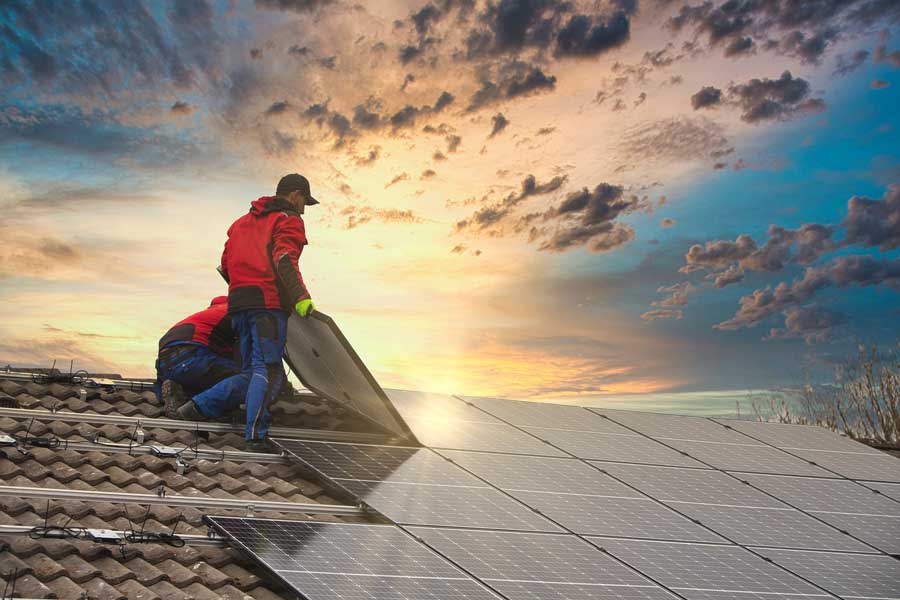As attention remains focused on using alternative sources of energy to preserve our resources and environment, solar power has been steadily gaining attention.
When thinking solar energy, we’re referring to a system in which solar panels are installed, typically on your roof.
Much like anything that requires what could be a substantial up-front investment, it’s always wise to ask yourself if it’s worth it.
Benefits of Solar Panels
Cooperative Weather
Installing solar panels in a sunny region could end up paying for itself in no time. Sunny locations would no doubt work well for powering up lights, heat and more.
Carbon Footprint Reduction
A carbon footprint tracks how many of our natural resources are consumed and discarded.
If a primary focus for you is to conserve energy and live an eco-friendlier lifestyle, solar panels can help you achieve that goal.
Because solar panels collect and store the sun’s energy to power up our homes, it helps to reduce consumption of fossil fuels and ozone pollution.
Increases Home Value
A more energy-efficient home certainly increases its value in today’s real estate market.
According to research by Zillow, homes sell for about 4.1% more than those without solar panels.
Solar Energy Considerations
Up-front Installation Costs
Installation of solar panels comes along with a significant up-front investment, even after rebates and incentives.
You must take into consideration the cost of the solar system itself, permit fees, and labor.
After installation, there are additional fees:
- Annual inspection
- Semi-annual cleaning
- Replacement equipment (inverters, batteries)
- Property tax increase
- Monthly loan or lease payments
Regional Energy Costs
If heat or electricity consumption is on the low side for you, adding solar panels may not give you a significant savings to justify the investment.
Check with your local utility company to see if there’s a meter to monitor both regular and solar energy separately so you can see real time usage numbers and cost savings.
Roof Compatibility and Load Requirements
One of the biggest factors of solar panel installation costs is the pitch and shape of your roof.
A steep roof or one that has a chimney or skylights will more than likely increase installation costs and make installation more of an expensive challenge.
Another consideration is if the roof is big and strong enough to accommodate enough solar panels for your energy needs.
Location of Solar Panels
Where the solar panels are installed will depend on how much solar energy can be collected. If placement isn’t on the sunniest side of the roof, it’ll impact how much solar energy you’ll have to work with.
Shade and/or Obstructions
Even if you live in a sunny climate but are surrounded by tall trees or other obstructions, it can decrease the effectiveness and amount of solar energy able to be collected.
Return on Investment
You’ll see savings on your energy bill by installing solar panels, but it may take some time to reap those cost-saving benefits.
Consider it more of a long-term investment over the course of a few years.
The average lifespan of solar panels is approximately 25-30 years.
Money Saving Incentives
Check into availability of regional or federal incentives and rebates offering a credit for taking advantage of installing a solar panel system.
Typically, there are extended warranties but it’s important to really understand what is covered and for how long.
Conclusion
Due diligence is critically import before making a decision to invest in solar energy.
Another way to save big money on energy costs is to upgrade your HVAC system. An energy efficient HVAC system saves energy and money while improving air quality and comfort. To learn more, call Dale HCS in Santa Rosa for answers to all your HVAC questions.

